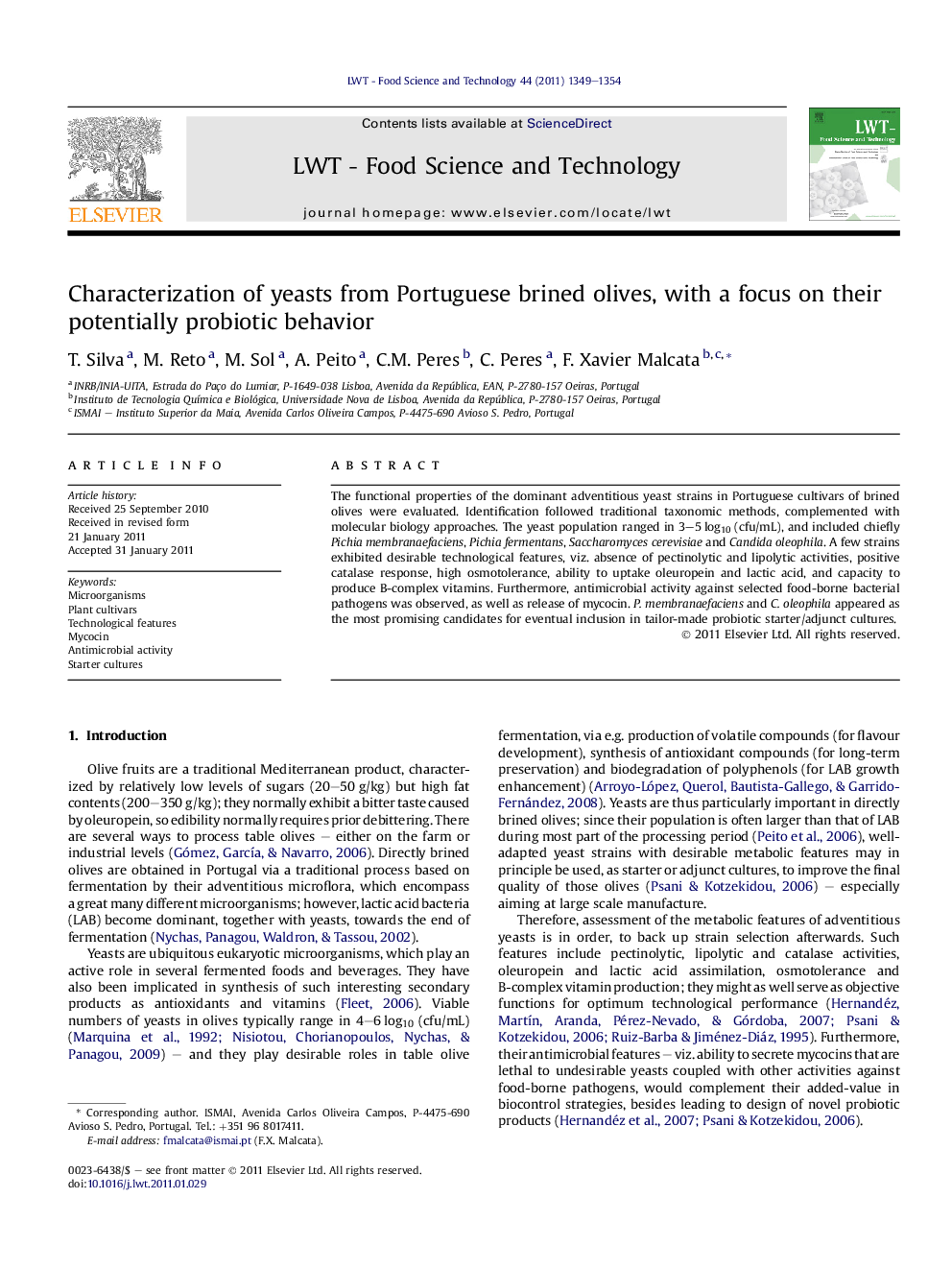| Article ID | Journal | Published Year | Pages | File Type |
|---|---|---|---|---|
| 4563996 | LWT - Food Science and Technology | 2011 | 6 Pages |
The functional properties of the dominant adventitious yeast strains in Portuguese cultivars of brined olives were evaluated. Identification followed traditional taxonomic methods, complemented with molecular biology approaches. The yeast population ranged in 3–5 log10 (cfu/mL), and included chiefly Pichia membranaefaciens, Pichia fermentans, Saccharomyces cerevisiae and Candida oleophila. A few strains exhibited desirable technological features, viz. absence of pectinolytic and lipolytic activities, positive catalase response, high osmotolerance, ability to uptake oleuropein and lactic acid, and capacity to produce B-complex vitamins. Furthermore, antimicrobial activity against selected food-borne bacterial pathogens was observed, as well as release of mycocin. P. membranaefaciens and C. oleophila appeared as the most promising candidates for eventual inclusion in tailor-made probiotic starter/adjunct cultures.
► Characterization of native yeasts in table olives from Portuguese cultivars. ► Unique fermentation protocol that enriches brine in useful metabolites. ► Probiotic strains found, able to withstand simulated gastrointestinal conditions. ► Probiotic strains found, possessing antimicrobial features against food-borne pathogens. ► Probiotic strains found, able to synthesize B-complex vitamins and breakdown oleuropein.
